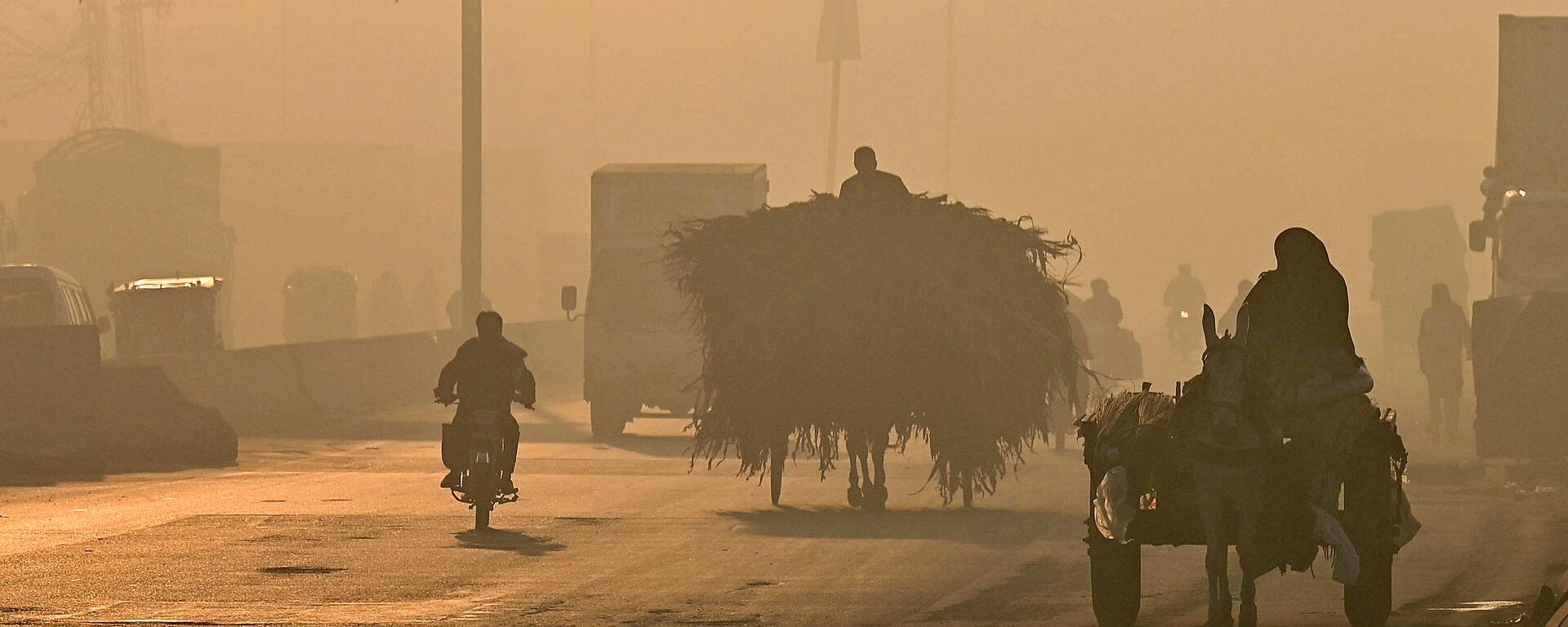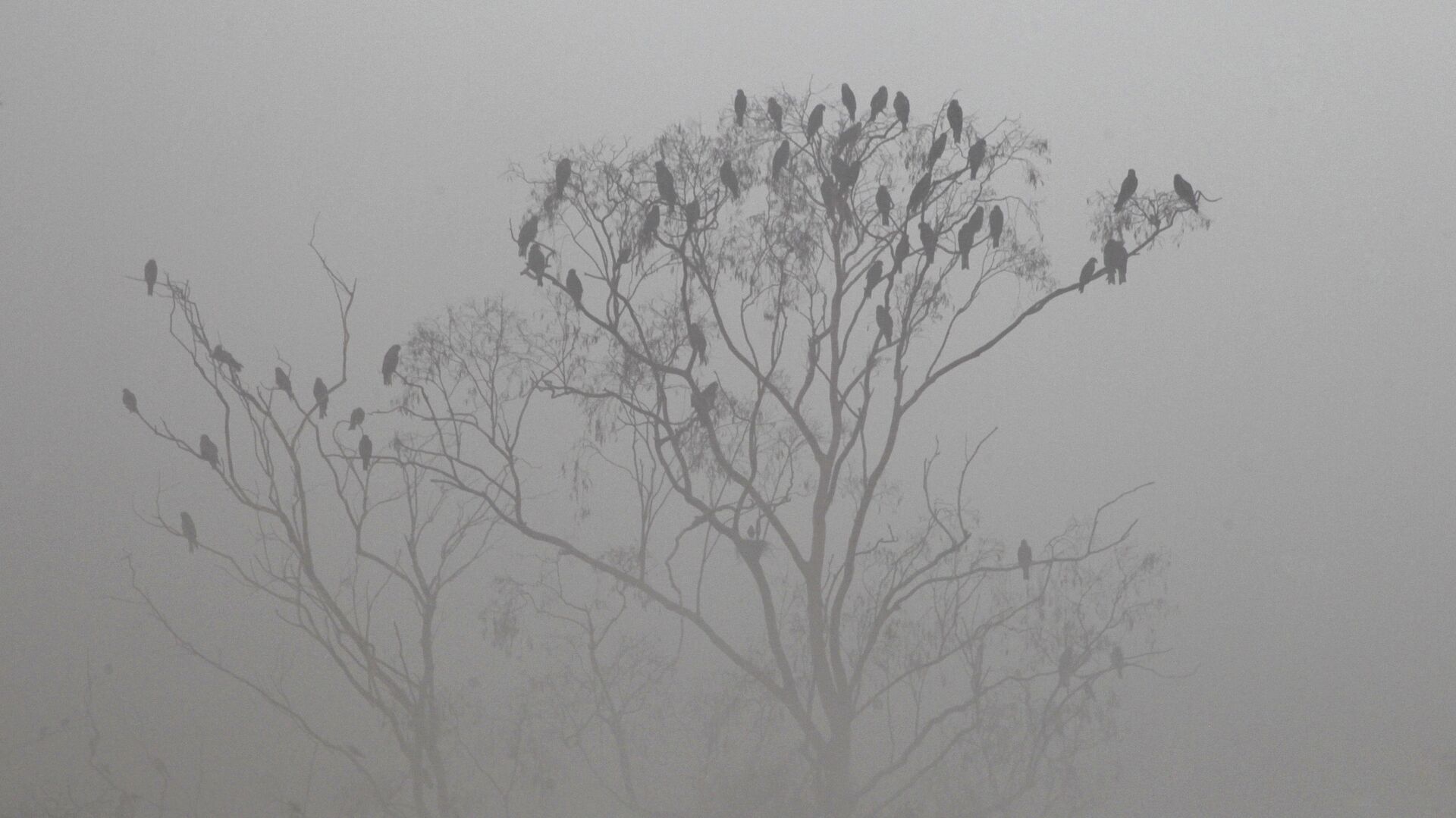https://sputnikglobe.com/20231224/artificial-rain-used-to-fight-air-pollution-in-pakistan-with-mixed-results-1115777045.html
Artificial Rain Used to Fight Air Pollution in Pakistan With Mixed Results
Artificial Rain Used to Fight Air Pollution in Pakistan With Mixed Results
Sputnik International
Pakistan's government is utilizing artificial rain through cloud seeding to fight air pollution Lahore, the capital of the province of Punjab.
2023-12-24T02:34+0000
2023-12-24T02:34+0000
2023-12-24T02:34+0000
world
international union for conservation of nature
lahore
cessna
cloud seeding
punjab
air pollution
https://cdn1.img.sputnikglobe.com/img/107208/98/1072089879_0:168:4674:2797_1920x0_80_0_0_2ebd6b1d543b8a7dbf0ea78ba5494138.jpg
The Pakistani government is using artificial rain to fight air pollution in the city of Lahore, the capital of the eastern province of Punjab.The city becoming increasingly polluted as its population has grown to over 13 million people. By comparison, New York City has roughly 8.5 million residents. Lahore has been growing too quickly for the city to deal with the pollution created by residents: it has more than doubled in size since 2000 when its population was about 6 million residents.The issue had gotten so bad that earlier this month schools, parks and markets were closed for four days and the AQI reached levels considered extremely hazardous to human health.Last Saturday, the provincial government attempted to address the situation by creating artificial rain through cloud seeding. A small Cessna plane was flown over ten areas of the city, spraying silver iodide on clouds to induce condensation and increase precipitation.According to the caretaker minister for the environment for the provincial government, the resulting rain was sparse because of a lack of naturally forming clouds which are needed to induce artificial rain. Still, the few millimeters that did fall managed to have an effect, lowering the city’s Air Quality Index (AQI) from the “Hazardous” level of over 300 to the merely “Unhealthy” level of 189.Unfortunately, the effect was short-lived, and a few days later the air quality had returned to hazardous levels.The seeding was performed by the UAE, which has experience with cloud seeding, which is often called “blueskying.” The Punjab government is said to be considering purchasing their own planes to do cloud seeding more regularly.However, cloud seeding is not a permanent solution and could have unexpected side effects, says Dr Ghulam Rasul, the head of the climate change program at the International Union for Conservation of Nature.
https://sputnikglobe.com/20221118/smog-blankets-pakistans-lahore-1104364107.html
lahore
punjab
Sputnik International
feedback@sputniknews.com
+74956456601
MIA „Rossiya Segodnya“
2023
News
en_EN
Sputnik International
feedback@sputniknews.com
+74956456601
MIA „Rossiya Segodnya“
Sputnik International
feedback@sputniknews.com
+74956456601
MIA „Rossiya Segodnya“
cloud seeding, silver iodide cloud seeding, air pollution in pakistan, air pollution in lahore, air quality in pakistan
cloud seeding, silver iodide cloud seeding, air pollution in pakistan, air pollution in lahore, air quality in pakistan
Artificial Rain Used to Fight Air Pollution in Pakistan With Mixed Results
Cloud Seeding was invented in the 1950s and has been used by countries in the Middle East and China to fight pollution and in the United States to combat droughts.
The Pakistani government is using artificial rain to fight air pollution in the city of Lahore, the capital of the eastern province of Punjab.
The city becoming increasingly polluted as its population has grown to over 13 million people. By comparison, New York City has roughly 8.5 million residents. Lahore has been growing too quickly for the city to deal with the pollution created by residents: it has more than doubled in size since 2000 when its population was about 6 million residents.
The issue had gotten so bad that earlier this month schools, parks and markets were closed for four days and the AQI reached levels considered extremely hazardous to human health.

18 November 2022, 10:34 GMT
Last Saturday, the provincial government attempted to address the situation by creating artificial rain through cloud seeding. A small Cessna plane was flown over ten areas of the city, spraying silver iodide on clouds to induce condensation and increase precipitation.
According to the caretaker minister for the environment for the provincial government, the resulting rain was sparse because of a lack of naturally forming clouds which are needed to induce artificial rain. Still, the few millimeters that did fall managed to have an effect, lowering the city’s Air Quality Index (AQI) from the “Hazardous” level of over 300 to the merely “Unhealthy” level of 189.
Unfortunately, the effect was short-lived, and a few days later the air quality had returned to hazardous levels.
The seeding was performed by the UAE, which has experience with cloud seeding, which is often called “blueskying.” The Punjab government is said to be considering purchasing their own planes to do cloud seeding more regularly.
However, cloud seeding is not a permanent solution and could have unexpected side effects, says Dr Ghulam Rasul, the head of the climate change program at the International Union for Conservation of Nature.
“Overdose [of clouds] may lead to hailstorm or torrential rain,” Rasul said, adding that overuse could create very dry conditions that make the pollution issue worse. The only lasting solution is to address the cause of smog and air pollution.



